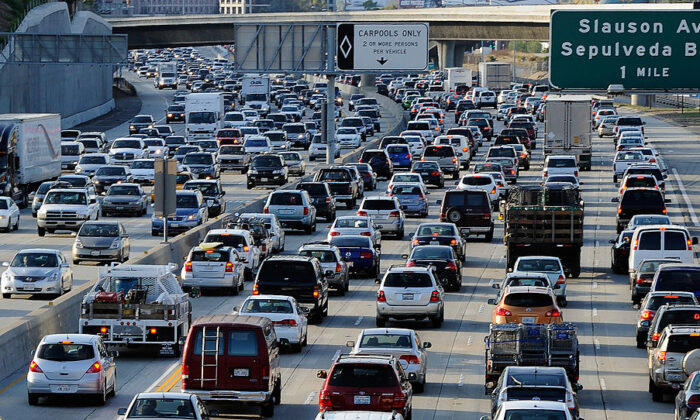Interested drivers must submit their applications by the end of June and can expect to receive notification of their eligibility in July. California is currently conducting a pilot program to assess whether charging drivers based on the number of miles they drive could be a more effective way to finance the state’s highway infrastructure and road maintenance budgets.
The exact per-mile taxes have not yet been established by the Legislature but could range from 2 cents to 4 cents, as per the program’s information.
During the program, which will run from August to January, any gas taxes paid by participants will be refunded. This initiative stems from the passing of Senate Bill 339 in 2021, authored by Sen. Scott Wiener.
Sen. Wiener emphasized the necessity of exploring alternative methods to finance road repairs, as the current gas tax system is becoming less viable with the increasing prevalence of electric vehicles. He stated in legislative analyses, “As policies promoting electric vehicles continue to be implemented, and gasoline consumption decreases, California must ensure a stable and secure funding source for transportation in the future.”
According to the state road charge program’s website, Californians driving gas-powered vehicles pay an average of $300 annually in fuel taxes. Currently, about 80% of road and highway maintenance costs are covered by such taxes, which currently stand at 57.7 cents per gallon and are set to increase to 59.6 cents per gallon on July 1, added to fuel prices at the pump.
Concerns have been raised that the state’s goals for zero-emission vehicles could jeopardize the approximately $9 billion collected each year in gas tax revenues. The state aims for all new passenger vehicles sold in California to be zero-emission by 2035.
With the weight disparity between electric vehicles and traditional vehicles, experts have warned that roads could face increased wear and tear. A 2024 study by the University of Nebraska-Lincoln highlighted that electric vehicles can cause more damage to highway infrastructure in accidents due to their weight.

Supporters argue that a mileage-based system is similar to utility rate charges. The state’s road charge pilot program website states, “Everyone would contribute their fair share for road repairs based on their driving habits, not the type of vehicle they own. California is working towards establishing a road charge program that is fair, transparent, and sustainable to meet current and future road maintenance needs.”

Opponents of the system argue that it could disproportionately affect low-income drivers who have to commute longer distances due to more affordable housing options in outlying areas. They are concerned that implementing a road-usage charge statewide could result in drivers of traditional gas-powered vehicles having to pay both the charge and the gas tax.
One critic of the plan expressed skepticism, stating that the per-mile charges could deter consumers from switching to electric or alternative fuel vehicles, as the cost-saving benefits from avoiding high gas taxes would be diminished.
Gas taxes were first introduced in California in 1923 with a 2-cent per gallon tax. The federal government followed suit 11 years later with an additional 1-cent per gallon tax. As of 1993, the federal tax stood at 18.4 cents per gallon, and California’s tax was 18 cents per gallon.
Over the years, California has continued to raise fuel taxes, including a 12-cent increase in 2017 and subsequent hikes in the following years. A similar pilot program initiated in 2016 lasted nine months to study the feasibility of per-mile charges, analyzing 5,000 vehicles and over 37 million miles driven. The final report in 2017 suggested that road-charge programs warrant further exploration, acknowledging the challenges in finding equitable solutions due to variations in vehicle types and fuel efficiency standards.





